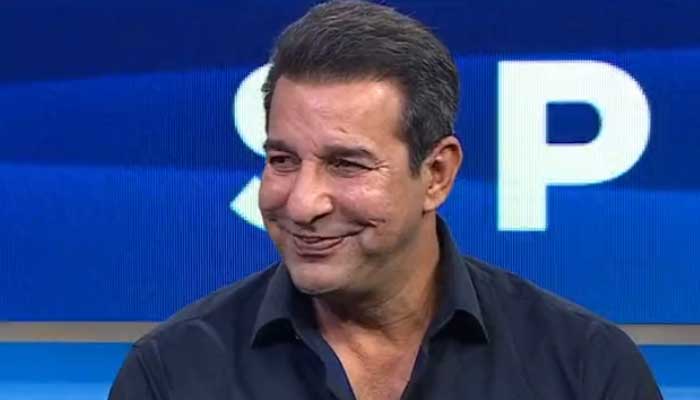VIDEO: Legendary Wasim Akram opens up about match-fixing allegations
Wasim Akram says the allegations drove him toward penning his autobiography, "Sultan: A Memoir"
SYDNEY: Pakistan's legendary former captain and bowling icon Wasim Akram opened up about match-fixing allegations levelled against him by the 'social media generation'.
In an interview with Wide World of Sports, the former fast bowler said that the allegations drove him toward penning his autobiography, "Sultan: A Memoir".
"In Australia, England, West Indies and India my name is taken in World XI as one of the greatest bowlers ever. But in Pakistan, this social media generation refers to me as match-fixer," Akram said.
To investigate match-fixing allegations against the former pacer in the 1990s, the Pakistan Cricket Board established an inquiry panel, headed by Justice Qayyum of the Lahore High Court. The panel's report was published in 2000 in which several cricketers were held responsible for the crime including Salim Malik and Ata-ur-Rehman.
Akram, however, was given the benefit of doubt by the commission in its report.
“The evidence against Wasim Akram has not come up to the requisite level, primarily because of Ata-ur-Rehman’s perjuring himself. This Commission is willing to give him the benefit of doubt,” the report stated.
“However, there has been some evidence to cast doubt on his integrity. As such, this Commission recommends that he be removed from the captaincy of the Pakistan Cricket Team and a person of impeccable character be appointed. Moreover, he should be censured, kept under watch, and his finances should be investigated,” it added.
The commission also fined Wasim Akram Rs300,000 after the report was published.
Akram's 18-year-long career ended in 2003. He is still considered as one of the greatest fast bowlers Pakistan has ever produced. The left-arm pacer took 414 Test wickets and 502 ODI wickets.
Cocaine addiction
The former fast bowler's book has also revealed his post-retirement cocaine addiction.
"I liked to indulge myself; I liked to party. The culture of fame in south Asia is all-consuming, seductive and corrupting. You can go to ten parties a night, and some do. And it took its toll on me. My devices turned into vices," he wrote in his book as quoted by the ESPNcricinfo.
"Worst of all, I developed a dependence on cocaine. It started innocuously enough when I was offered a line at a party in England; my use grew steadily more serious, to the point that I felt I needed it to function.
"It was getting out of hand. I couldn't control it. One line would become two, two would become four; four would become a gram, a gram would become two. I could not sleep. I could not eat. I grew inattentive to my diabetes, which caused me headaches and mood swings. Like a lot of addicts, part of me welcomed discovery: the secrecy had been exhausting.”
The cricketer-turned-commentator had a long struggle with drug addiction which finally ended after his first wife's demise.
"Huma's last selfless, unconscious act was curing me of my drug problem. That way of life was over, and I have never looked back," he wrote.
-
Alex de Minaur faces surprise elimination in Acapulco thriller by Patrick Kypson
-
Devin Vassell, Wembanyama shine in Spurs victory over Detroit
-
USA beats Canada for first Olympic hockey gold in 46 years; Donald Trump, Barack Obama & others hail historic victory
-
Claressa Shields defeats Franchon Crews-Dezurn in heavyweight title rematch
-
Kara Braxton, WNBA All-Star and champion, dies at 43
-
Magic vs Clippers: Clippers announce Kawhi Leonard status after exit
-
NFL star Rondale Moore dies aged 25, Minnesota Vikings pay tribute
-
Winter Olympics 2026: Remembering the most unforgettable, heartwarming stories












